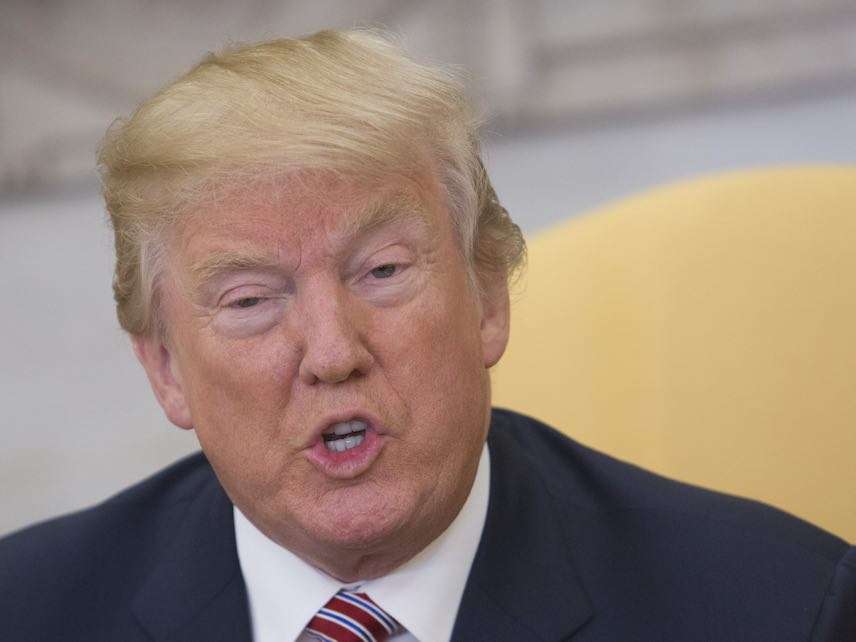Donald Trump Is Confused About Due Process
"Peoples lives are being shattered and destroyed by a mere allegation."
President Donald Trump is not happy about losing Rob Porter, the White aide who quit after two ex-wives alleged that he physically abused them. On Saturday, Trump tweeted a lament:
Peoples lives are being shattered and destroyed by a mere allegation. Some are true and some are false. Some are old and some are new. There is no recovery for someone falsely accused - life and career are gone. Is there no such thing any longer as Due Process?
— Donald J. Trump (@realDonaldTrump) February 10, 2018
It's not clear that Donald Trump knows what "due process" means.

Due process is the constitutional requirement that people receive certain protections from the government: "no person shall be…deprived of life, liberty, or property, without due process of law." A person accused of a crime has the right to an attorney, the right to cross-examine witnesses, the right not to incriminate himself, the right to a fair trial in general, etc. Due process means the government can't just toss suspected criminals in cages and throw away the key. For these reasons, it's a powerful bulwark against an authoritarian state and an important defender of the liberties of people who are especially vulnerable to state-sanctioned repression (Muslim Americans after 9/11, for instance).
Whether you think Rob Porter is guilty has nothing to do with due process. Due process does not require citizens to withhold judgment about an allegation until the matter is litigated. Due process applies to law enforcement and the justice system, not to the court of public opinion.
A private employer may wish to operate under an informal climate of due process, and the public at large might prefer a culture in which people are given the chance to present their side of the story before judgments are made. And there are more complicated situations; a public university isn't the government, but it's a government-funded public institution, and courts have found that these institutions are required to extend certain rights to faculty and students. Some universities also make contractual promises regarding due process to students, who are after all paying a great deal of money to attend the institution.
But it really doesn't apply in this situation.
Trump's tweet was inviting easy criticism already, because it comes across as callous toward a group of people—survivors of assault—who deserve respect and sympathy. People's lives are indeed destroyed by false accusations, and false accusations may be more common than some oft-cited statistics seem to suggest. But of course people's lives are also hurt significantly by domestic abuse and sexual assault. The tweet doesn't even acknowledge that.
In that context, adding an uninformed appeal to due process at the end may make it sound like due process is some sort of obstacle to holding sexual abusers accountable. And in our current political climate, many people may wish to instinctively oppose anything Trump says he favors. Don't fall into that trap. Due process is a vital defense against tyranny, and it has little to do with Rob Porter losing his job.


Show Comments (87)